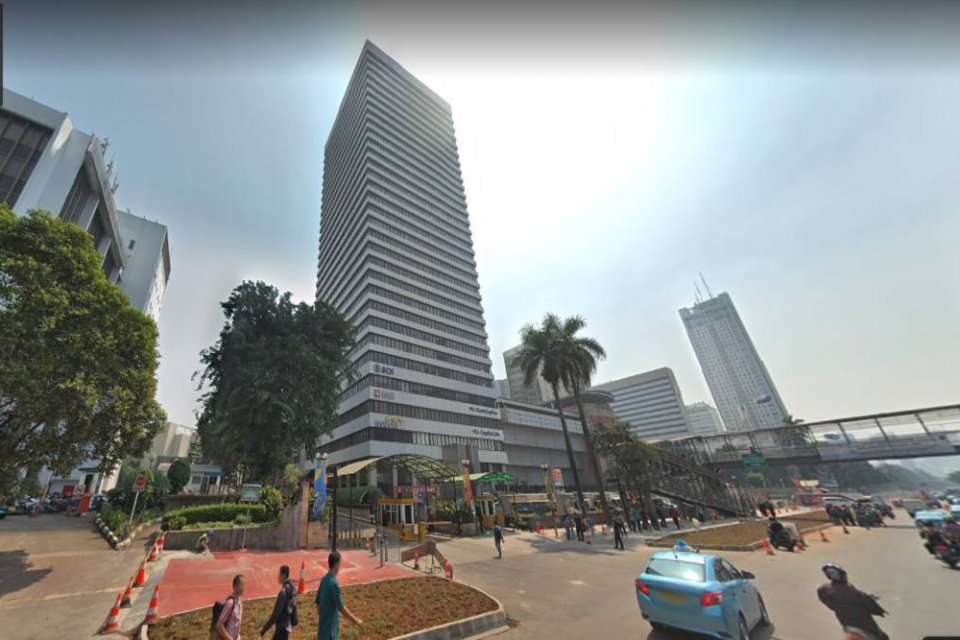Three months on, the Covid-19 pandemic has clearly tested the tenacity, readiness and agility of a community and nation—a test that the entire nation must rise up to at all fronts with synergy. Adding the fact that much is still not known about the virus, the epidemic, and its vaccine, and the uncertainty about when this pandemic might end, research and innovation capability becomes pivotal.
It is as if Indonesia's ecosystem of knowledge and innovation, like those of other nations in the world, is on a petri dish.
Everything is conditioned by the pandemic and the need to respond quickly and appropriately. In a matter of weeks, various institutions driven by the Ministry of Research and Technology/National Research and Innovation Agency (Kemenristek/BRIN) through the Covid-19 Research and Innovation Consortium have produced prototypes of personal protective equipment for medical personnel, detection devices and various other outputs that can immediately address the need to respond to the pandemic. The difference with previous situations is that these prototype products are subject to special treatment to be produced and reproduced by industries, both state-owned and private.
And in that petri dish experiment, we can observe and learn lessons in three important aspects. The first aspect is the importance of cultivating a stock of knowledge. The second and third aspects that must go hand in hand are orchestration of innovation ecosystem and consistency of bureaucracy.
Stock of Knowledge
An easy measure to gauge the accumulation of knowledge is statistical figures. Although still some ways from the ideal and still concentrated in several institutions, the number of researchers that actually conduct research in Indonesia has increased from 40 persons per one million population in 2015 to 89 per one million population in 2019. If we also include lecturers, the figure will increase to 1,071 researchers per one million population. Productivity has also doubled as reflected in the increasing number of Scopus publications (medium level), from 8,475 publications in 2015 to 45,936 in 2019.
This achievement is only the first step in the improvements that must be endeavored regarding qualifications, infrastructure and improving effectiveness of knowledge-producing institutions to produce inventions and innovations.
This quantitative measure then seems to be tested for its quality and relevance in responding to the pandemic. Putting aside all issues related to science and technology human resources, with the existing strengths, do we have sufficient knowledge about epidemiology, phyto-pharmacy, engineering of medical devices that can be produced quickly and relatively cheaply, or strategies for changing people's behavior?
Judging from the outputs produced by the Covid-19 Research and Innovation Consortium in such a short time, I am quite optimistic that even in terms of quality, our stock of knowledge is quite decent.
However, it can be said quite frankly that a lot of homework remains to understand the social dynamics of our society, so that innovation does not only produce products, but also interventions, behavioral change strategies and comprehensive public policies.
Orchestrating the Innovation Ecosystem
Accumulated knowledge does not automatically become useful – i.e., becoming invention and innovation. The process is not linear either. There are a number of key actors in the innovation ecosystem with complex interconnected dynamics which inevitably must be orchestrated.
The 2019 Global Innovation Index report notes the weak relationship between research ecosystem and industry and the low absorption capacity of local companies to innovation as problems commonly found in developing countries such as Indonesia.
Ideally, the orchestration role shall be performed by the state. Quoting Mariana Mazzucato in her book The Entrepreneurial State (2014), ‘if done effectively, the role of the state is to firmly – but not authoritatively – direct the vision and provide the thrust to make it happen.’ In this context, the state is not just a facilitator, but actively becomes a key partner of the private sector and have the ability to direct multiple interests.
Under normal circumstances, the bureaucratic machine has a sufficient understanding of the above roles. But its application requires more than just a comprehension. Delivering n-helix connectivity, even from its simplest – government, academia and private sector – requires agility to understand the basic motivations of each stakeholder and (positively) manage its dynamics. It must be admitted that thus far, pandemics aside, the desired orchestration of the relationships is yet to fully materialize.
But apparently, in the context of a pandemic, that orchestration ability emerged. Indonesia, which was 90% dependent on imports for its health and medical device needs, must start thinking about being able to fulfill its own needs.
The Ministry of Health identifies and calculates what is needed, researchers and engineers work quickly to respond with various prototypes, and state-owned enterprises and private companies are conditioned to mass produce. The products are then directly absorbed by the state and distributed to health facilities.
Perhaps the saying “necessity is the mother of invention” is true. The necessity – or in this case compulsion – gave rise to inventions in orchestrating the innovation ecosystem. The role of this orchestration will be largely carried out by the Ministry of Research and Technology/National Agency for Research and Innovation (Kemenristek/BRIN), of course not without collaboration with other ministries. Moreover, in the future, the Ministry of Research and Technology/National Agency for Research and Innovation will become the ‘single orchestra player’ if the idea to expand the National Agency for Research and Innovation (BRIN) by integrating Research, Development, Assessment and Application institutions in the Ministry/Institution really materializes.
This compulsion or forced condition hopefully creates awareness that in order to advance the nation, like it or not, the state needs to have a sharp vision of industrialization, not just a supplier of cheap labor or become traders.
A knowledge-based vision of public welfare – not just the economy – must be built on the basis of social needs and strengths of the society, and supported by a set of policies. Development of strategic industries, for example, must often be protectionist (Ha-Joon Chang, 2003) in its early stages, without neglecting its externalities. The state must have the courage to apply this principle elegantly, especially for a developing country like Indonesia.
This orchestration role is also needed in the long term, to answer the development challenges that are increasingly complex and require multi-disciplinary and cross-sectoral collaboration. The current pandemic clearly underscores the importance of capturing expertise in a wide variety of disciplines – from health and medicine to social sciences and humanities – to find the best solutions.
Vision-and-Policy Consistent
One of the most fundamental of the three aspects that I mentioned earlier is consistency. In the context of advancing the knowledge and innovation ecosystem, the most important consistency is in safeguarding the realization of the vision. Many roads lead to Rome – there are many ways to prosperity. And it seems we all agree that welfare is what we are aiming for.
However, one thing should be noted. From the many possible ways to realize a sound knowledge and innovation ecosystem, the outline of the policies chosen must be consistent, or at least in line. Building such an ecosystem will take decades, and progress will be incremental. Thus, it is better if a new policy is built on existing ones, and not make any U-turns. Expertise of new officials and awareness of continuing the good that has been pioneered by their predecessors, not just for the sake of being completely different, will be the keywords in guarding this important step.
Law Number 11 of 2019 regarding the National System of Science and Technology has mandated one fundamental thing regarding the role of science and technology in national development. This policy reinforces several improvements that have been made in the last five years. That said, it must be realized that this Law is not a perfect book – there are certainly many shortcomings. But it is the best that exists today when it comes to science, research and innovation.
Steps that have been initiated and begun to be implemented by the Government by encouraging the integration of research-innovation through the 2017-2045 National Research Master Plan and the 2020-2024 National Research Priorities, as well as Presidential Regulation Number 16 of 2018 (Article 62) which has narrated the possibility of research using the State Budget with a multi-year, multi-source, assignment and output-based system (simpler financial accountability, but still accountable) would be an excellent starting point to accelerate the implementation towards innovation-based prosperity for the Indonesian nation.
Efforts that have been taken during the work of the Covid-19 Research and Innovation Consortium – however imperfect – are the early realization of the implementation of this mandate. If within just the next decade the utilization of stock of knowledge and orchestration of actors in the ecosystem can be carried out consistently, it seems we could reap the rewards. It is those “principles and beliefs” that must be held and guarded together by all levels of society.
Once again, if these three points can be implemented well, there is no doubt that a developed and prosperous Indonesia, one built on knowledge and innovation, will gradually but surely be achieved.




